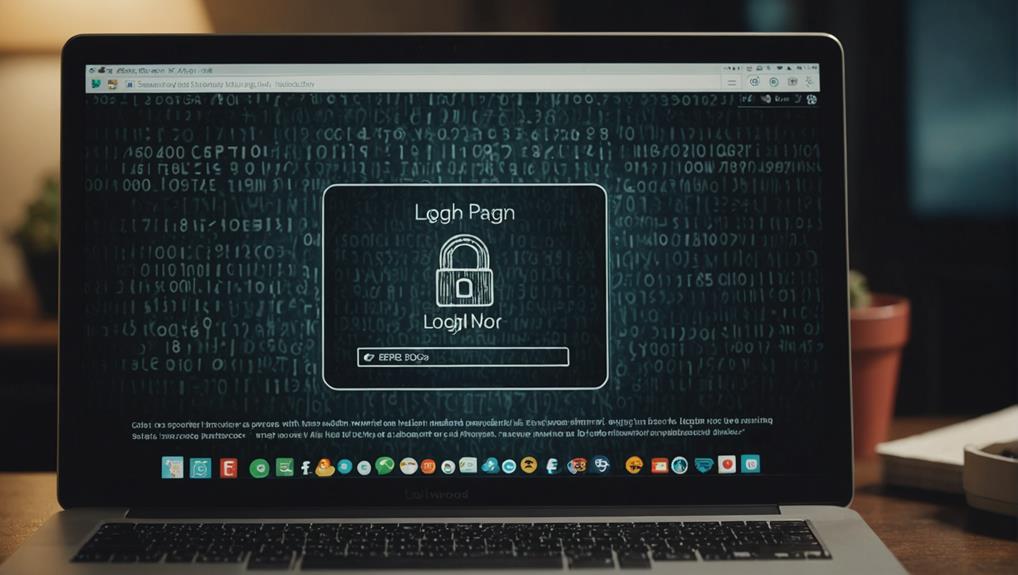Secure your login page effectively with these three essential tips: set a strong password policy, activate two-factor authentication, and install thorough security plugins. Strengthen defenses by using unique passwords and considering password managers. Add an extra layer of security with Two-Factor Authentication using plugins like Google Authenticator. Shield against threats like brute force attacks by installing security plugins with features like Web Application Firewall. Regularly update and maintain these plugins for ongoing protection. Master these tips to safeguard your login page and keep unauthorized access at bay.
Implement Strong Password Policy
Utilize a strong password policy to enhance the security of your login page. When setting up passwords, remember that password length plays an essential role in deterring potential hackers. Longer passwords increase the cracking time significantly, making it tougher for cybercriminals to gain unauthorized access to your WordPress site.
To make sure that you have unique and robust passwords for each account, consider using password managers like Bitwarden. These tools can generate complex passwords and securely store them for easy access.
Moreover, implementing Two-Factor Authentication (2FA) provides an extra layer of protection by requiring users to verify their identity through a secondary method. For WordPress sites, plugins such as Two-Factor and miniOrange Google Authenticator offer 2FA options that can be easily integrated into your login process.
Additionally, improving your site's overall security can be achieved by activating thorough security plugins like Wordfence or Jetpack Protect. These plugins help in safeguarding your website from various threats, ensuring a more secure online presence.
Activate Two-Factor Authentication
Consider enhancing the security of your login page by activating Two-Factor Authentication (2FA), adding an extra layer of protection for your WordPress site.
Two-factor authentication requires users to provide two forms of verification, such as a password and a unique code sent via email, SMS, or apps like Google Authenticator. By integrating plugins like Two-Factor or miniOrange's Google Authenticator, you can easily set up this additional security measure on your WordPress login pages.
Implementing two-factor authentication is important as it helps prevent unauthorized access, especially in cases where passwords may be compromised. This method significantly reduces the risk of successful brute force attacks on your WordPress login page.
With two-factor authentication in place, even if malicious actors obtain your password, they'd still need the secondary verification to gain entry, making it a powerful deterrent against unauthorized logins.
Strengthen your WordPress site's security today by activating two-factor authentication.
Install Comprehensive Security Plugin

Enhance the security of your WordPress login page by installing a thorough security plugin like Wordfence or Jetpack Protect. These WordPress security plugins offer extensive protection against various threats, including brute force attacks and malware scanning.
Consider the following features when selecting a security plugin:
- Web Application Firewall: Protect your website from malicious traffic and hacking attempts.
- Activity Logs: Monitor login attempts and track any suspicious activities on your site.
- Two-Factor Authentication: Add an extra layer of security by requiring a second form of verification for user logins.
Ensuring that your security plugin receives regular updates and maintenance is essential to stay ahead of potential vulnerabilities.
Conclusion
So, are you ready to take the necessary steps to protect your login page from potential threats?
By implementing a strong password policy, activating two-factor authentication, and installing a thorough security plugin, you can greatly enhance the security of your website and keep your sensitive information safe.
Don't wait until it's too late – take action now to safeguard your online presence.



